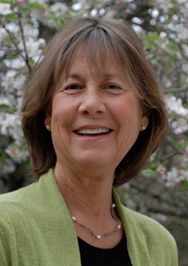How will the younger generation of wine business professionals further their careers in Sonoma County when they’re priced out of planting their dreams and growing their families on land and in homes where they would otherwise sink roots?
I asked this question in an earlier column and now return to explore it more deeply.
In 1986, I landed in Sonoma County as PR director for Ferrari-Carano and met Rita Cambiaso Ivy. Rita was affectionately referred to as the winemakers’ realtor.
She didn’t merely find us a house in a family-friendly neighborhood walking distance to schools, she made it possible for me to invest in Sonoma County because of her brother Joe, who offered me a second loan.
It was a great way for them to influence the future of the community, while making interest on their money and helping young people to get into their first homes. In the 1980s, like now, it was one thing to come up with a significant down payment, and quite another to qualify for a loan large enough to cover the balance.
What motivated Rita and Joe to take risks with young people they barely knew?
Rita told me stories of how her Italian family landed in San Francisco. Her father worked as a janitor at Shreve & Co., and her mother washed display windows at Gumps.
Rita was always proud of her immigrant parents and the work ethic that defined their family.
In 1922, patriarch Giovanni Cambiaso struggled with back problems and his doctor suggested a warmer climate to ease the pain. Rita was three months old when they moved to their new home on 52 acres on the south end of Healdsburg (now Domaine St. George).
Clearing rocks off the property to prepare for vineyard plantings, and structuring them into rock walls that remain to this day, was surprisingly just what the doctor ordered.
During Prohibition, they cultivated vineyards, inter-planting them with French and Imperial prunes.
After repeal in October 1934, Giovanni founded Cambiaso Winery in an old barn, making and storing wine in huge redwood tanks.
From as early as she could remember, Rita and her siblings tended the vineyards, following their parents’ lead in working from sunup to sundown. Later, as perhaps the only woman involved in selling wine at the time, Rita secured her family wines as house wines in some of the most distinguished restaurants in San Francisco, Marin and Sonoma.
Winemaker and general manager, Joe was a skilled mechanic who purchased used equipment he was able to repair. As first generation Americans, the Cambiaso siblings knew how to stretch a dime.
When they sold the winery in 1973, and stayed on to oversee the expansion and continuity of the brand that carried their name, they also began looking outside of wine in planning their future.
Sonoma County was also expanding in the 1970s. A talented saleswoman, Rita, at age 60, had the confidence to obtain her real estate license and start her own agency.
The security she enjoyed growing up on their ranch translated into a passion for helping young people settle into their own homes.
But it was more than that. Rita and Joe never had children of their own. It always felt as if they adopted so many of us and we became their extended family. It was remarkable, really. In investing in us, our lives and theirs became forever intertwined.
So who are the modern day Johnny Appleseeds? Generous neighbors who can assist young people for whom purchasing land or a home is just barely out of reach?
Relevance for today: creative financing within our communities is still greatly needed. For those with resources to do so, it is far more than lending money.
To assist others in sinking roots is to transform the lives of generations to come.
Like Rita and Joe, let’s pay it forward for our young winegrowers, firefighters, schoolteachers, artists and writers, enriching our lives and the lives of others, while shaping the future of Sonoma County.
Marie Gewirtz cultivates words, grandchildren and global recollections of wine on the banks of the Russian River. She can be reached at: wi*******@********st.com.









